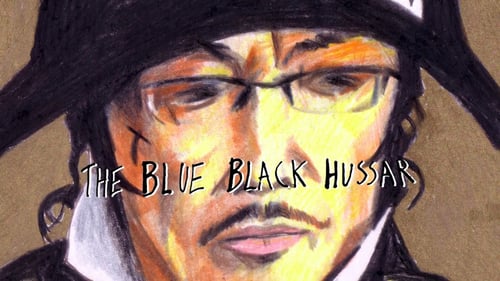Frances
The film follows Adam Ant on his first tour for fifteen years after suffering mental health problems. What is particularly astute about Jack Bond's approach is that it never flags up the moments when the singer's volatile temperament shows itself, prompting the viewer to remain attentive, drawn in by Adam Ant's wry humour and impressively wide frame of cultural reference until a too manic burst of enthusiasm, a disarmingly sharp turn of phrase or going AWOL after heading off for cigarettes hints that all is not quite serene beneath the surface. It certainly allows us to sense the sheer insidiousness of mental illness but never at the expense of betraying the trust of this still charismatic live performer, a man who clearly feels that his artful punk era output has never quite got the cultural respect it deserves. We never see Bond button holing his subject with any sort of journalistic ruthlessness to dish the dirt, instead hanging back and observing so that those brief moments when the troubled singer does open up feel as if they're truly earned.
GD Cugham
'Blueblack Hussar' follows Ant during his obsessively driven comeback of the early 2010s. Strutting the streets of London in his Lord Nelson tricorn hat, like the time-travelling veteran of some early nineteenth century war, Ant has battled mental illness, sectioning and public acrimony. Many who casually followed Ant on UK television may have recalled a greying, t-shirt-and-suit sporting fellow who seemed more "Manager of Deutschebank" than "Wild King of Deutschegirls". Ant's attempts to appear as a wine-bar crooner, inoffensively and uninterestingly attired, drove his fans away like vampires from garlic. Maybe it was 'Pirates of the Caribbean' and a previous decade that had seen history become cool in the movies. 'Plunkett and Maclean' and 'Dear Wendy' made anachronistic swashbuckling fashionable and it surely must have been a transfusion of Johnny Depp's "rock star pirate" Jack Sparrow that reminded Ant why he had been loved. Kids loved his adventurous persona, teenagers kindled excitement and all meanings of romance from his "gone native" Prince Charming.Bringing with him a carnival retinue of burlesque dancers, Gen-X musicians, retaining two drummers and, with the help of kohl and dye, a still handsome older version of his 80s pinup self, Ant struck up a comeback tour that would not have been out of place in the campaign of a regency general. Ant is followed from London to Paris and back as he marshalls his circus, primal screams in the faces of a 100 Club audience, meets idol Charlotte Rampling - an ex partner of director Jack Bond - to have her guest on a cover album. 'Spinal Tap'-esque interviews with interloping "hip" radio stations and media show Ant as the old hand he really is, toying with, intimidating but ultimately aiding his fixy-bike riding interrogators. Jack Bond, his face a graceful, gaunt mask of handsomeness, peeps in and out of his film like both a curious child and avuncular companion to the walking Terry Gilliam movie Adam Ant has become. Bond famously directed documentary of Salvador Dali and Olivier and Ant fits this canon. Unlike Bowie or Madonna - or more especially, Michael Jackson, who stole Ant's look for one tour - Ant has embraced his eccentricity. He may possibly be open to accusation of hypocrisy by being one of those who commercialised punk and now looks to mine punk nostalgia and independent digital media to relaunch. Ultimately, though, Ant remains a fascinating figure, still searching for a muse, still hungry for an audience and - as a camera-skimmed wall collage hints - is eternally, one-sidedly warring with the last figure he believed robbed him, Johnny Depp.

